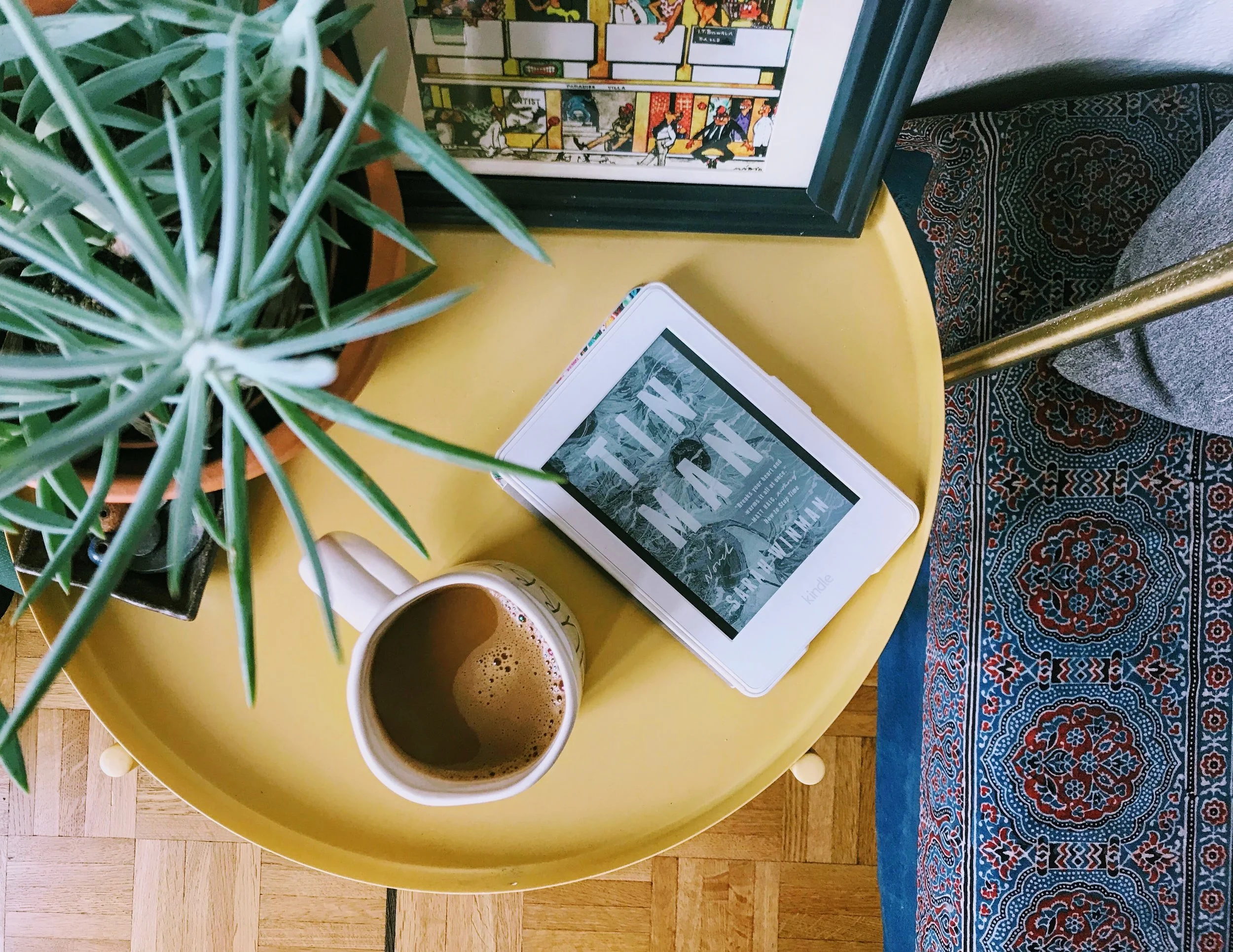The Importance of Empathy
I need to get something off my chest.
I’ve been holding off on writing about this here on my blog, focusing instead on the hikes I’ve been doing or the books I’ve been reading. Light stuff. Fun stuff. But I can’t ignore it anymore. Because even though I’m living in Switzerland, I am an American. And I still carry the burdens of my home country, a country that feels like it is being ripped apart. I’ve written before that it feels like I’m living in parallel realities. Some days, it almost feels like an out-of-body experience, when my physical body is here, but my consciousness is quite literally a thousand miles away.
But I’ve had three experiences lately that really made me think: one from an art installation, one from an interview with an author, and one from a conversation with a conservative family member. It was the sum of these three experiences that have forced me to acknowledge what really has been keeping me up at night. What has me most worried about the state of the US. I just need to put my thoughts, and moreover, where I stand, on paper. And it needs to live somewhere - not on social media, with its 24-hour disappearing stories and impossible-to-beat algorithms, but here, in a space that is mine.
So here it is.
First: the art.
There was a public art installation, titled “I live under your sky too,” set up by the lake near my house for the past three weeks. It was part of Theater Spektakel, an annual art and culture festival that is one of my favorite events in Zurich. This year’s theme was “The Postcolonial Planet,” and so most of the art and performances focused on the consequences of colonial and racist structures on our society. This particular art piece was created by Shilpa Gupta, an Indian artist from Mumbai: The sentence “I live under your sky too,” written in her own handwriting in three languages, projected nightly with LED lights. The truth, written in the sky, in English, Urdu and Hindi. It’s the picture you see at the top of this post.
It struck me, because it’s a different message that we are used to hearing. You know, the hopeful and optimistic saying, “we all live under the same sky.” This has a different message. The emphasis on “your,” this implication of ownership. Not the same sky, but your sky. I think it calls attention to the power structures in the world, and their inherent inequality. The pandemic, for example, has not been the great equalizer. Like water flooding into cracks on a street, COVID-19 found its way into every single systemic inequality in American society - and laid them all bare. Exposed them. Magnified them. But instead of uniting, the societal gaps were widened even further. And we saw how deep the divides were between those in power and those without, between those with privilege and those without. We saw how quickly the response turned from ‘we are all in this together’ to ‘every man for themselves.’ We saw how fragile it all is. I looked at these bright lights, spelling out the truth in front of the mountains as the sun set, and thought about the anxiety, anger and tribalism that is plaguing the US, causing more damage than the pandemic itself. “I live under your sky too.” My country, I fear, is very far from the “we all live under the same sky” version of this message.
Second: the author.
Elia Shafak is a Turkish-British writer that I’ve just recently discovered, but have come to greatly admire. I attended the virtual Edinburgh International Book festival over the weekend, and particularly enjoyed listening to her interview. Some of her most powerful points talked about using the art of storytelling for wisdom and connectivity. She’s not just interested in telling the stories through writing, but also listening to the silences - finding who’s story is not being told, and writing those stories, too. Because if we don’t hear these stories, we might not be able to see others as equal human beings. I couldn’t agree with this more. Reading has always been one of my most important tools for learning and understanding. I believe in the inherent power of a good book, and the ability of language to strike an emotional chord. Reading broadly, diversely, and intentionally can help us bridge the gap between what we read and how we can create a more just and equitable society. I left Elia’s talk with a page full of notes.
To her, and to me, it really all came down to empathy.
Which leads me to three: the conversation.
I was recently debating with an ardent Trump supporter about the current state of the country. The conversation itself was mostly cordial, if not a wild ride, and as you can probably imagine we disagreed on nearly everything. But near the end of it - I was mocked by him for bringing up empathy. Told I should leave empathy out of it.
Isn’t this the one thing that we can all be able to agree on? That we should all agree on?
Empathy. The ability to understand and share the feelings of another. Empathy. Something that helps us connect and reminds us to be kind and decent. Empathy. Something that allows us to say “I haven’t had that experience, but I’m listening to yours,” that can open our eyes to the privileges afforded to us that might not be afforded to others. Empathy. Something that forces us to care about things that happen to other people, across the street or across borders, because you are able to imagine yourself in the same situation. Empathy. Something that helps us understand the beliefs and the perspectives of others, or challenges us to reframe our own perspective. Empathy is so important. And this blatant rejection of empathy - well, it just hit me straight in the heart.
Because empathy - empathy is what humanizes us.
And this conversation crystalized it for me. It highlighted the common thread that strung these three moments together: empathy. Or more accurately, the lack of empathy. This is what has been on my mind, the thing that keeps me awake at night: the void of empathy in America. This mental loophole that creates the “other,” an us versus them mentality, which slowly but relentlessly strips away all of our human elements. This dehumanization. The dehumanization of people who don’t agree with you. Of people who look differently than you. Of people who pray, speak, love, believe differently than you. Dehumanization is what leads us to think ‘this is my sky, not yours.’ It’s what leads to apathy and anger. It’s what leads to deep divisions and polarization. It’s what leads to justifications of racism and xenophobia and exploitation. It’s what leads to nationalism. It’s what leads to fear of the unfamiliar and the fear of what we don’t understand. It’s what leads to the persistence of police brutality, lynching, hate crimes. It’s what leads to separating immigrant children from their parents. It’s what leads to extrajudicial killings in the streets by murderers, who are then celebrated as patriotic vigilantes. It’s what leads to responding to the fact that 180,000 people are dead with a dismissive “It is what it is.” This lack of empathy. We should be asking for more empathy, of us and our peers and our leaders, not less.
I know that empathy alone can’t solve everything. I’m still a realist. I believe in the importance of strong democratic institutions, checks and balances, free and fair voting, smart public policy, thoughtful leaders, quality education, diverse representation, an independent media, science, facts. But the undercurrent? Empathy. Empathy, if nothing else, reminds us that this is our collective human experience, and that the actions we take also impact those around us.
And you may ask why I specifically identified that my conversation was with a Trump supporter, not just someone who identifies as conservative. It’s because it is an important distinction. Donald Trump does not display empathy, does not embody empathy, does not promote empathy - he enthusiastically celebrates the lack of it. And it shows. Donald Trump is not a decent human being. Donald Trump actively, excitedly, purposefully, incites hate and violence and division. Donald Trump thrives on the creation and demonization of the ‘other.’ Donald Trump is racist. Donald Trump has made it very clear that he only cares about himself. Donald Trump views empathy as a weakness, not a strength. If you passionately and unequivocally support Donald Trump, you condone these qualities. And worse, consciously or unconsciously, you might start to embody these same qualities. Which is why, while I was extremely disheartened, I was also not surprised that it was a Trump supporter that ridiculed the idea of empathy.
So I need to put this out there, in my tiny little corner of the internet. That I, proudly, stand for empathy. I stand for empathy, and for all it entails. I stand for humanization. I stand for civil rights, minority rights, and human rights. I’m nowhere near perfect. I mess up all the time. I say the wrong thing, or don’t speak up when I should, or let my frustrations boil over. I’m still learning so much, every day. And I have so much work to do. But this is a line I’m drawing in the sand. We can debate, we can argue, we can disagree. But don’t ask me to leave empathy out of it. Because if we do, then what else is left?






